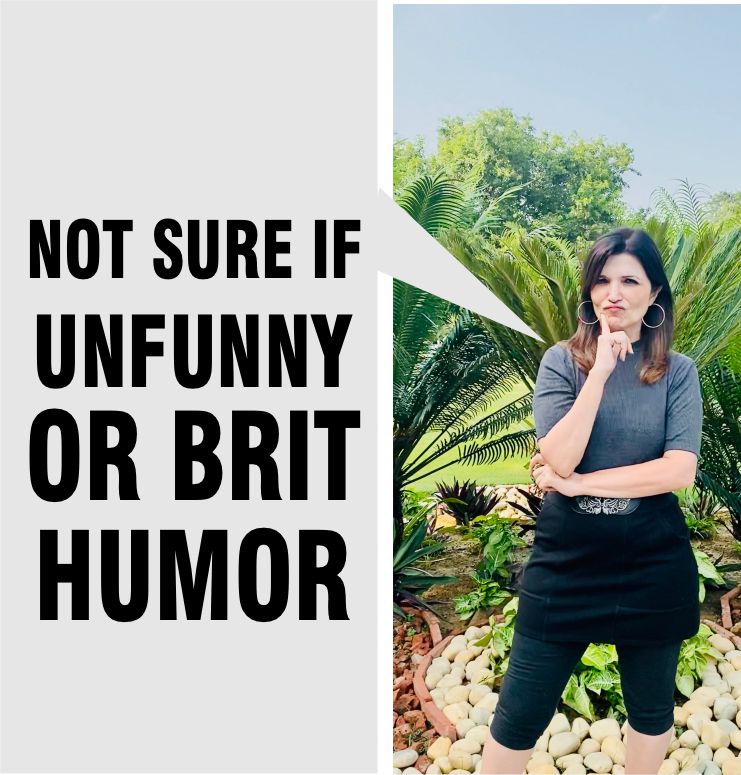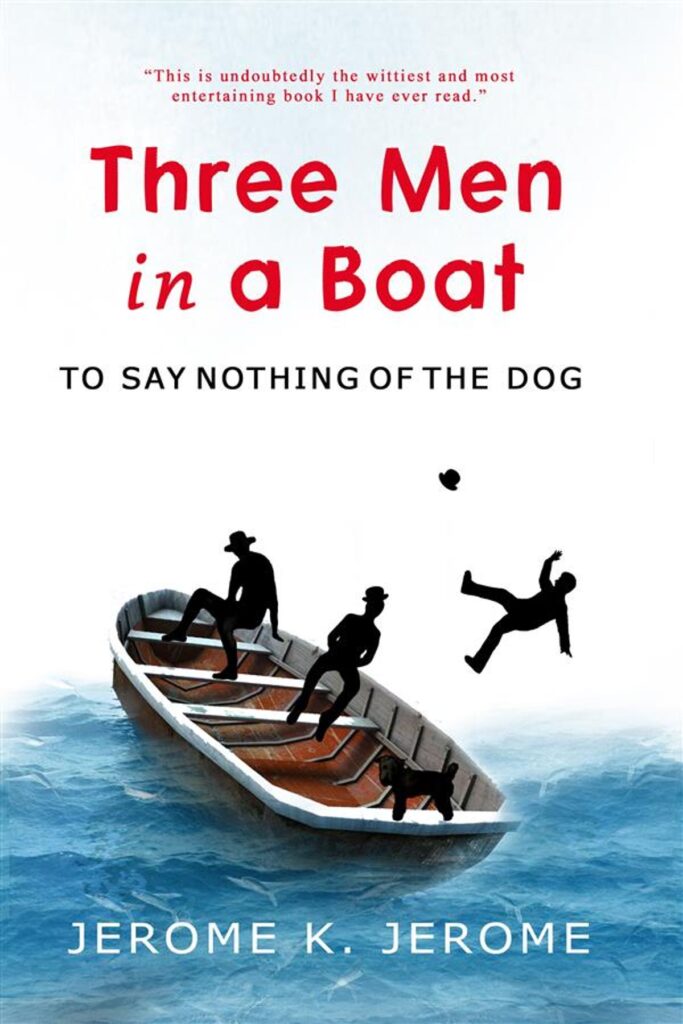
Wit, they say, is educated insolence.
I like such definitions.
No frills. No flab.
Two words and the gist is yours.
In a developing country like India, fodder for dark humor abounds in every abyss of irony, every crevice of poverty.
Being born in an environment where life itself is a joke for many, we Indians tend to inherit a wider gag palate.
It makes us at home with both tongue-in-cheek and slapstick.
Still, my choice of wit is Brit.
Yes, Brit wit with its elegant, understated, and delicately piercing self-deprecation fascinates me.
Like a sip of the bubbly, it tickles my mind’s palate.
I behold its words on my tongue and swirl with an indulgent flourish. Playful thought bubbles tease my senses, igniting every nook – like glow worms lighting up a misty jar.
I soak in the beveled sting of these bubbles; the words turn into chaff and meander down my gut; the thought cosseted within those words, breaks loose, and flirts its way up my cerebrum.

A delicious assault unleashes on my anterior lobe, followed by a seductive caress on the dorsal.
Finally, morphing into a flush of inspiration, the humor impregnates a virgin pocket of intellect in my mind, which in turn sputters with warm creative rejoinders – simultaneously heaving the contented sigh of a satiated puppy who has just lapped up a bowl of porridge and is now ready to curl up in cloud-cuckoo-land.
Speaking of humor, I’ve just put down Three Men in a Boat, a book by Jerome K.Jerome (JKJ), that’s peppered with generous doses of the famed Brit wit.
It’s a book, which snob-schoolers apparently studied in their fifteens, but I’ve got down to reading only now, in my fifty’eens (as a commitment to my book club).
Reviewed by millions of online readers, Three Men on a Boat has mostly been described as ‘humongously humorous’.

Well, humorous it is –– if you brush aside the occasional PJ that blobs up like a soggy biscuit sailing woefully in an unfinished cup of lukewarm tea.
Unfortunately, despite my soft spot for Brit wit, we didn’t quite hit it off in the beginning, the book and I
The culprit? Uncle Podger.
Remember the chapter ‘Uncle Podger hangs a Picture’ – part of the English syllabus in lowly high schools?
I hated that chapter.
Uncle Podger did succeed in hanging his ‘picture’ in the story, which I found horribly unfunny back then (my mind clearly had not been pollinated with Brit humor yet), but unwittingly, he also hanged my class-VIII results.
I scored a duck in the literature that year.
I NEVER forgave the podgy Uncle Podger for the fiasco.
Now suddenly, an initial chapter of Three Men on a Boat brought my bête noire and me face to face again (I had no idea my school chapter was an excerpt from this book).
This unexpected confrontation brought back memories of being bludgeoned by my English teacher for drawing up a clumsy character-sketch of an obviously ‘clumsy character.’
I instantly took a vicarious dislike for JKJ – blaming him for the dressing down that I was given by my principal in front of my mom, some four decades back.
So, my acrimony with the author was established even before his Three Men could climb into the Boat.
I got into earnest revenge mode right from the initial chapters.
Wearing shades —possibly pre-colored with judgment— over my reader’s eye, I was jumping paragraphs, chiding narrative, scoffing the content, and generally accusing JKJ’s jokes as lacking rib-tickle.
Brit humor? My foot, Brit humor!
The Three pore Men meanwhile scrambled for life jackets, not knowing why I was so hell-bent on rocking and sinking their boat.
Finally, almost forty percent into the book, my anger was spent.
So was I.
As dissipated the fog of hatred, so resurfaced my love for Brit humor.
I became kind, forgiving, and receptive.
The jokes thereon became smile-worthy; the content time-worthy.
My sense of humor gradually aligned itself with the author’s, and my mind started sailing in the same boat as the Three Men.
The bubbly started tingling afresh my palate.

So my review (if you can call it one) of Three Men in a Boat is essentially based on the second half of the book.
Well, comedy is clearly the raft on which the book’s characters sail; it is also the anchor on which JKJ’s forte hangs.
Parts of the story throb with authentic Brit wit, where JKJ seems in full control of the winds that direct the boat into humorous waters caressing comical coasts.
He lets loose air-brushed anecdotes in the narrative, with relish. And flourish.
Then suddenly, the boat hits choppy waters of inconsistent narrative and sinks (into slumber) where the author seems to recall his mission of writing a travelogue (and not a joke book).
Abruptly, almost as if guilty of enjoying himself too much, JKJ switches to a laden-with-meaning poetic discourse – a bait to keep the literati hooked on to the boat, I suspect.
Intermittently, exhibiting the sheepishness of an adolescent who has overshot his share of chocolate pudding, he turns to give a nondescript, somnolence-inducing account of his visit to some nondescript island.
Here, he seems to virtually struggle to inject some STORY into the story.
The narrative changes gears abruptly.
You are yanked out of one thought flow and thrown into another.
No caveat. No warning.
Such switches are jarring.
A little rude too.
Sometimes an overkill with tale after tale after tale, steps on the tail of the narrative and smothers movement.
So in the end, the book IS worth a read, though it ain’t ‘humongously humorous,’ I’d say. Your liking the book also depends on whether Brit wit is your cuppa, or not.
If it is, raise a toast. If it isn’t, well, raise your standard.
And now before I start reading the next book on my bucket list, a short bookworm prayer to the lord of semantics :
“Give me a Good Book, O Lord, or Give me Death.”
—Puja Bhakoo, author, MOOD SWINGS
For those of you who would like to read up more on Brit humor, here are a few links:
http://www.ef.com/blog/language/beginners-guide-to-understanding-british-humor/
http://time.com/3720218/difference-between-american-british-humour/
https://en.wikipedia.org/wiki/British_humour